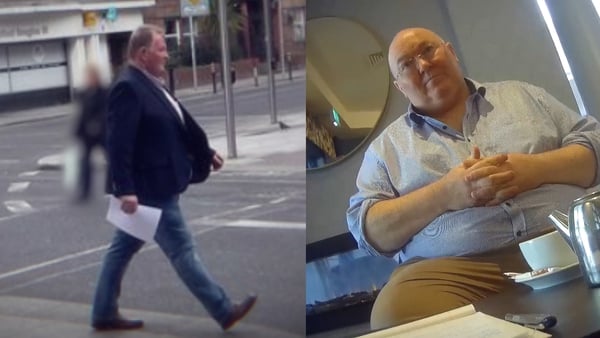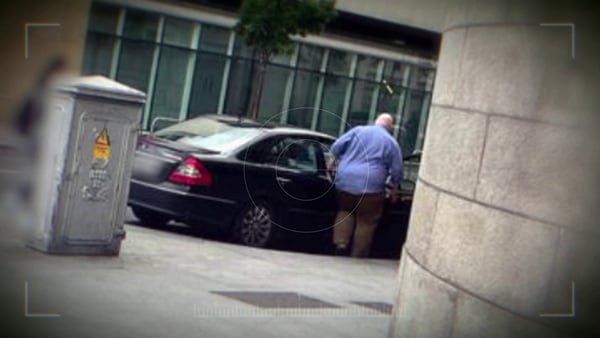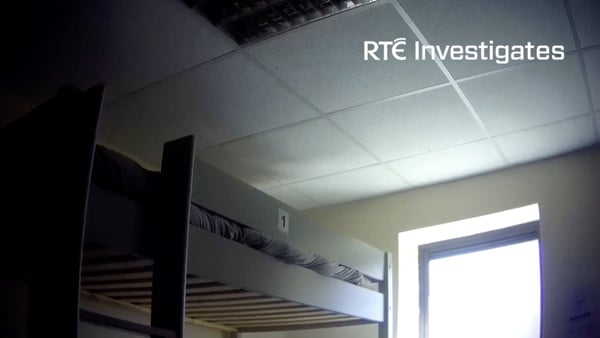The number of breaches of court protection orders in domestic abuse cases reported to gardaí increased by more than 60% during the Covid-19 pandemic, when compared with 2018 and 2019, according to figures released to RTÉ Investigates.
Court protection orders are designed to protect victims of domestic abuse from their abusers.
The figures form part of the research for a documentary broadcast on RTÉ One television which examines the increase in the number of reports of domestic abuse in Ireland over the last 12 months, with many services across the country describing themselves as "overwhelmed".
In 2018 and 2019, there were 2,504 breaches of protection orders reported. That number increased to 4,072 during the first two years of the pandemic when there were multiple lockdowns.
The figures reveal that over the same periods, reports of breaches of safety orders increased by 12% and breaches of barring orders increased by 22%.
During 2020, the number of breaches of domestic abuse orders shot up, with a total of 4,345 breaches reported.
In 2021, the number of reports of breaches continued to rise, with 4,672 reported.
278 of these cases last year led to imprisonment, representing 6% of the breaches recorded. But the actual number of offenders jailed was smaller again because some offenders were imprisoned for more than one breach of an order.
The figures from the Department of Justice show that the number of breaches of domestic abuse orders where there was a conviction increased by more than 50% last year. They rose from 547 in 2020 to 782 in 2021.
But further information supplied by the Irish Prison Service reveals that the actual number of offenders who were jailed for breaching a domestic abuse order last year was 137.
This was an increase on the previous year's total of 99.
A total of 48,400 domestic abuse incidents were reported to gardaí in 2021. But the figures, released by the Department of Justice in response to a parliamentary question made by Fine Gael TD Fergus O'Dowd, show that 24,500 cases were categorised under the heading, "no offence disclosed."
In a statement, gardaí said this heading "refers to incidents, of a domestic abuse nature attended to by An Garda Síochána but where no specific criminal offence or breach of an order is disclosed, complained of or observed.
"In line with An Garda Síochána policy on domestic abuse intervention these calls are recorded so that patterns of domestic abuse at a particular location or high risk potential victim or abuser can be identified."
The CEO of Women's Aid, Sarah Benson, has urged anybody experiencing domestic violence not to suffer in silence.
Speaking on RTÉ's Six One News, Ms Benson said: "Please don't suffer in silence. Reach out to somebody who you trust, contact ourselves, the national helpline, we can refer you to all of the local services around the country."
Ms Benson said that Covid-19 restrictions exacerbated the circumstances for people who were already in coercive, controlling and abusive relationships.
She said that the courts were forced to slow down, which led to a surge in demand for emotional support and practical information from organisations like Women's Aid.
She said that domestic violence is not just physical violence.
"Domestic violence traditionally has often been referred to in terms of physical violence in a relationship from a current or former partner. That's not the case.
"Domestic violence is a pattern of behaviour and it can include some or all of the following; psychological abuse, emotional abuse, economic or financial abuse, and of course, coercive control, sexual violence, and threats and physical violence and threats," said Ms Benson.
If you have been affected by any of the issues in this article, you can find support at rte.ie/helplines. You can reach Women's Aid, which supports women who have experienced domestic abuse, on their 24-hour freephone helpline by calling 1800 341 900. You can reach Men's Aid, which supports men who have experienced domestic abuse, on their helpline by calling 01 554 3811.
Watch the RTÉ Investigates documentary Domestic Abuse – A Year in Crisis on RTÉ One and RTÉ Player.





